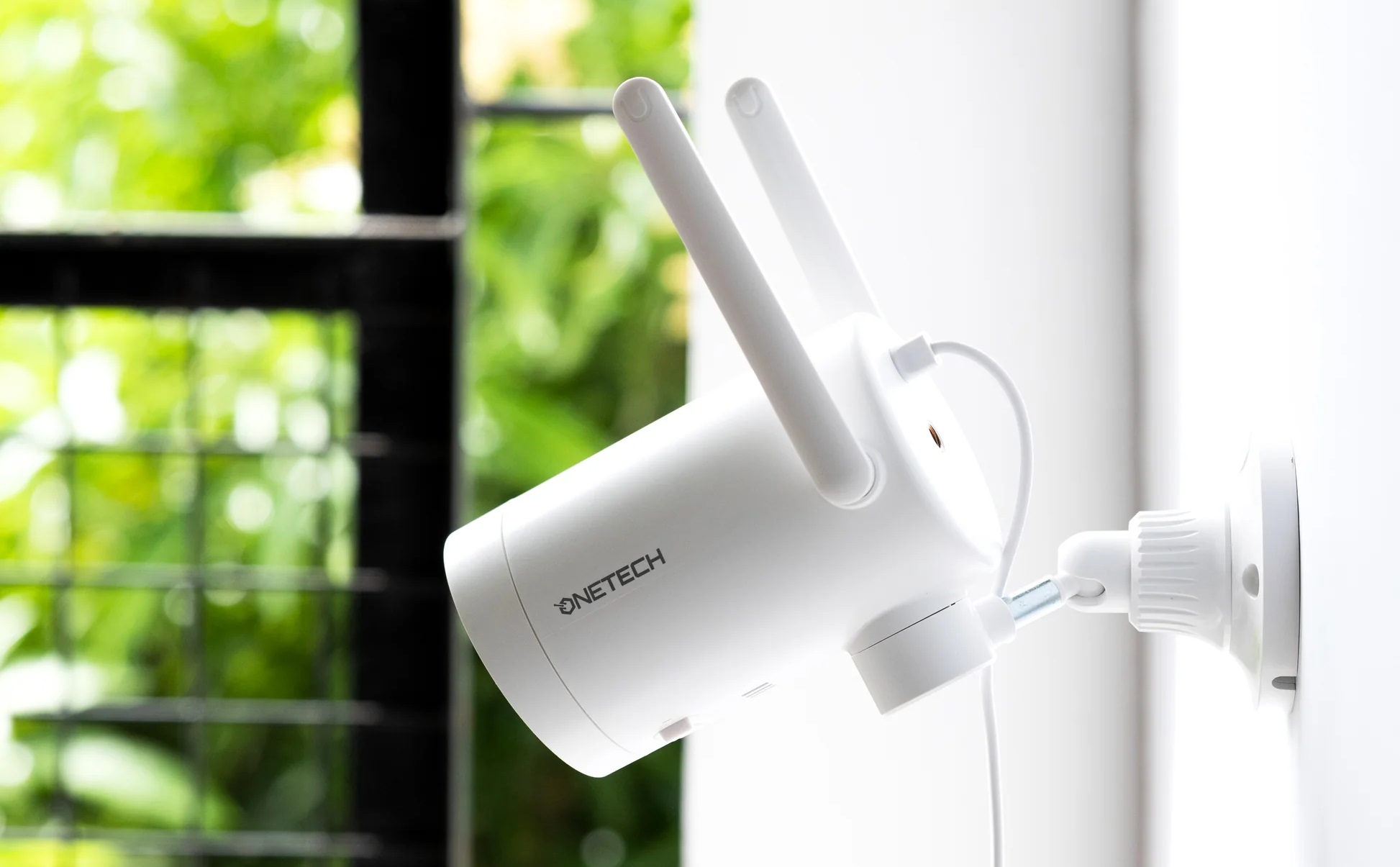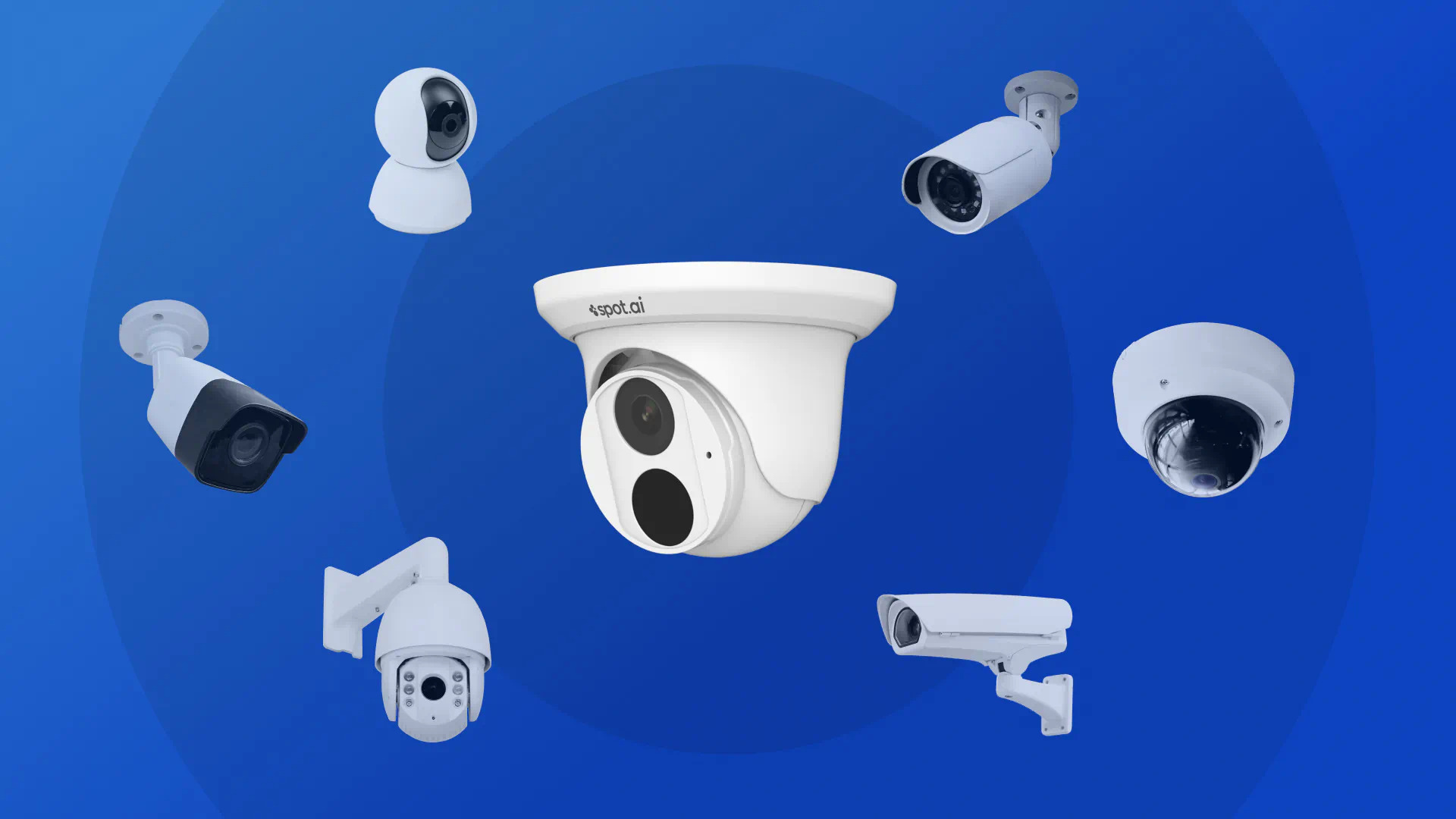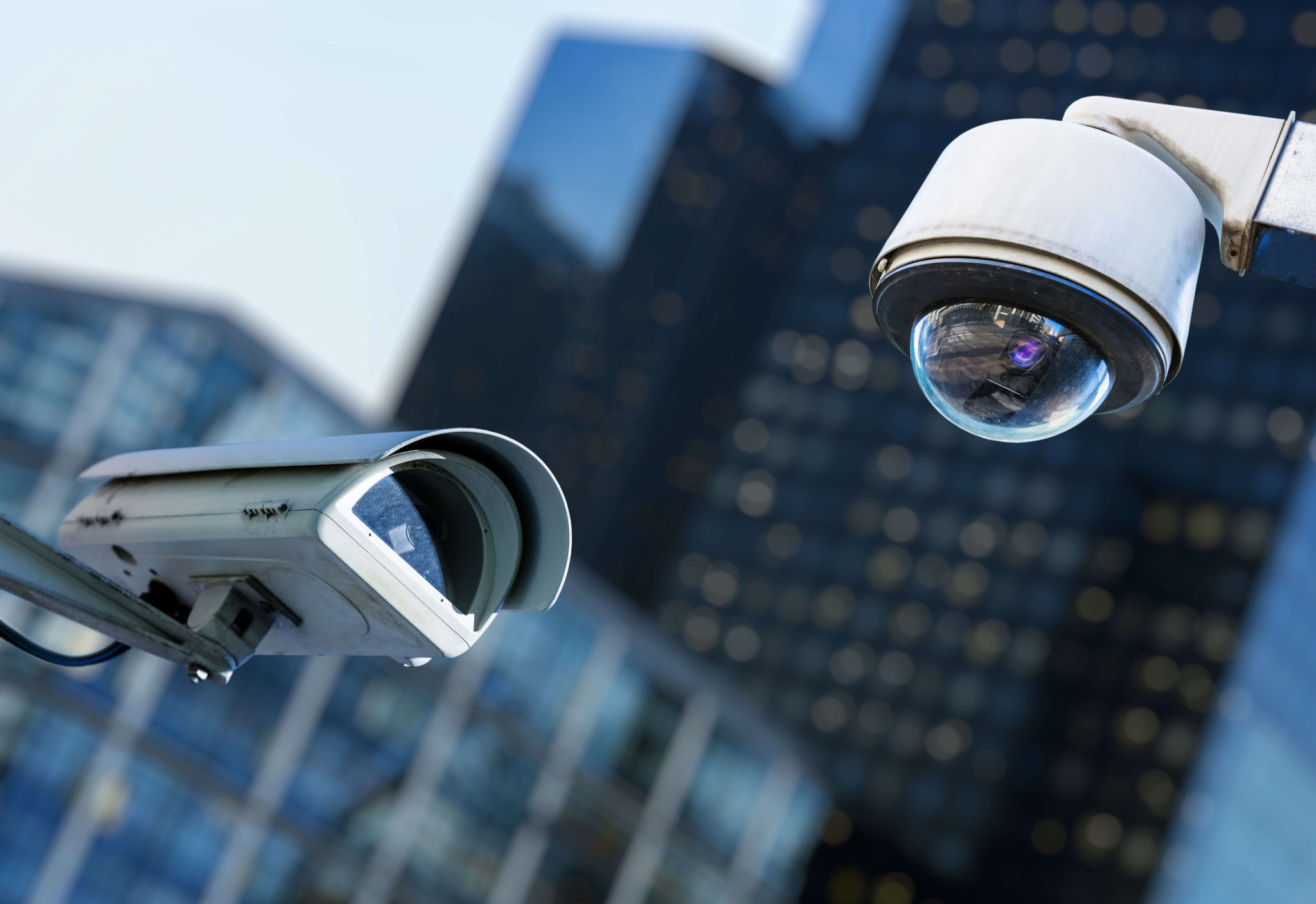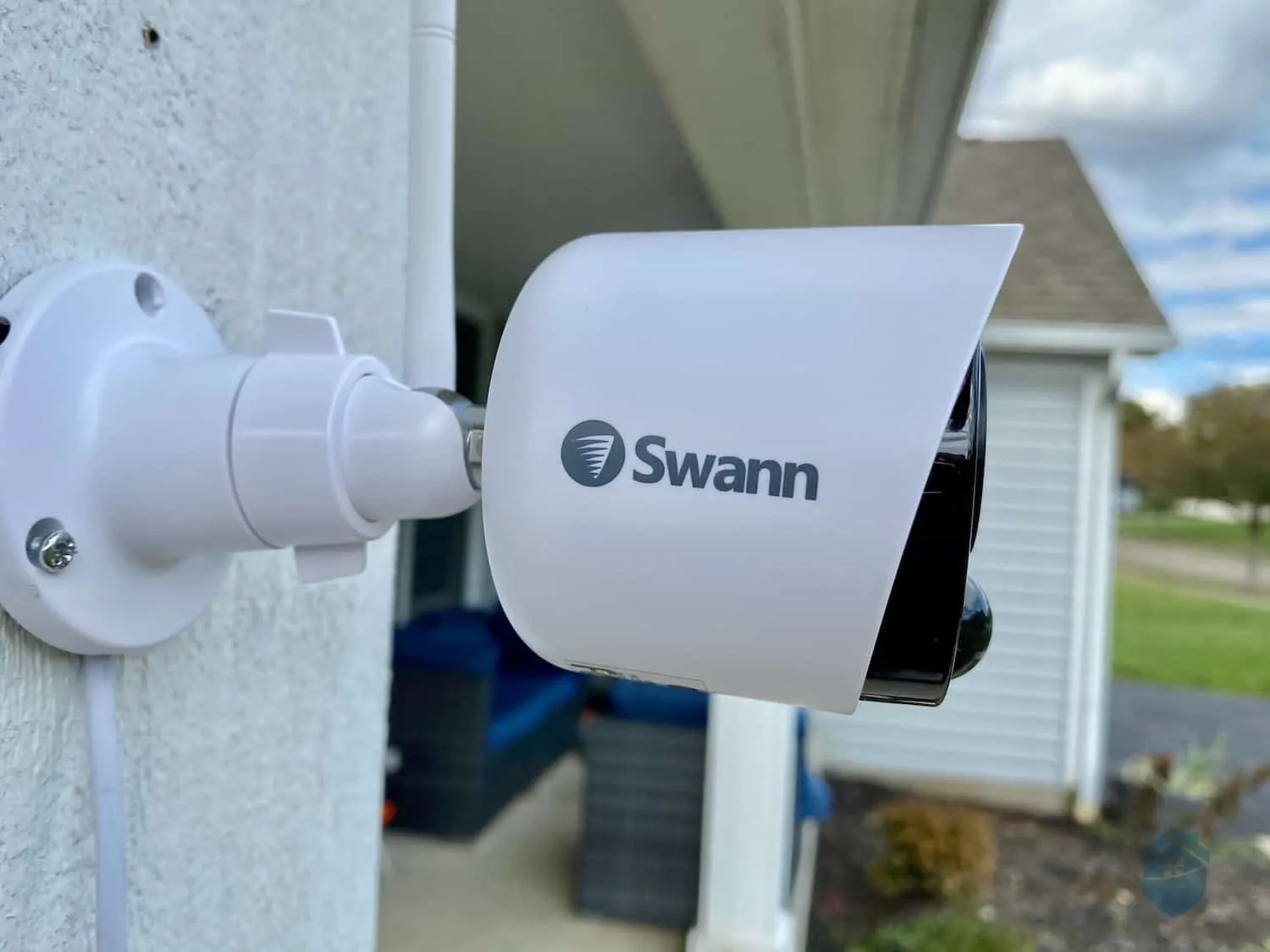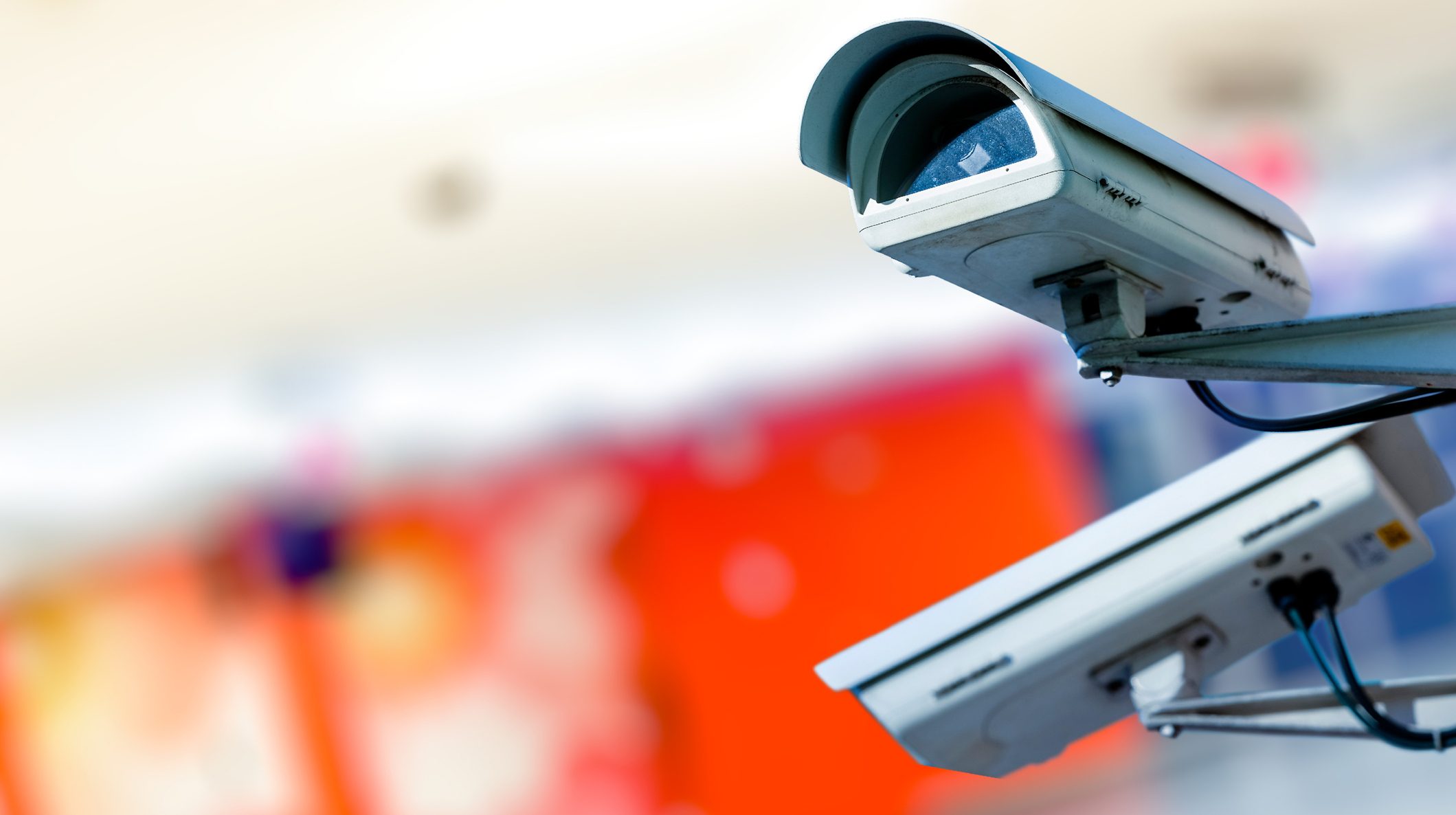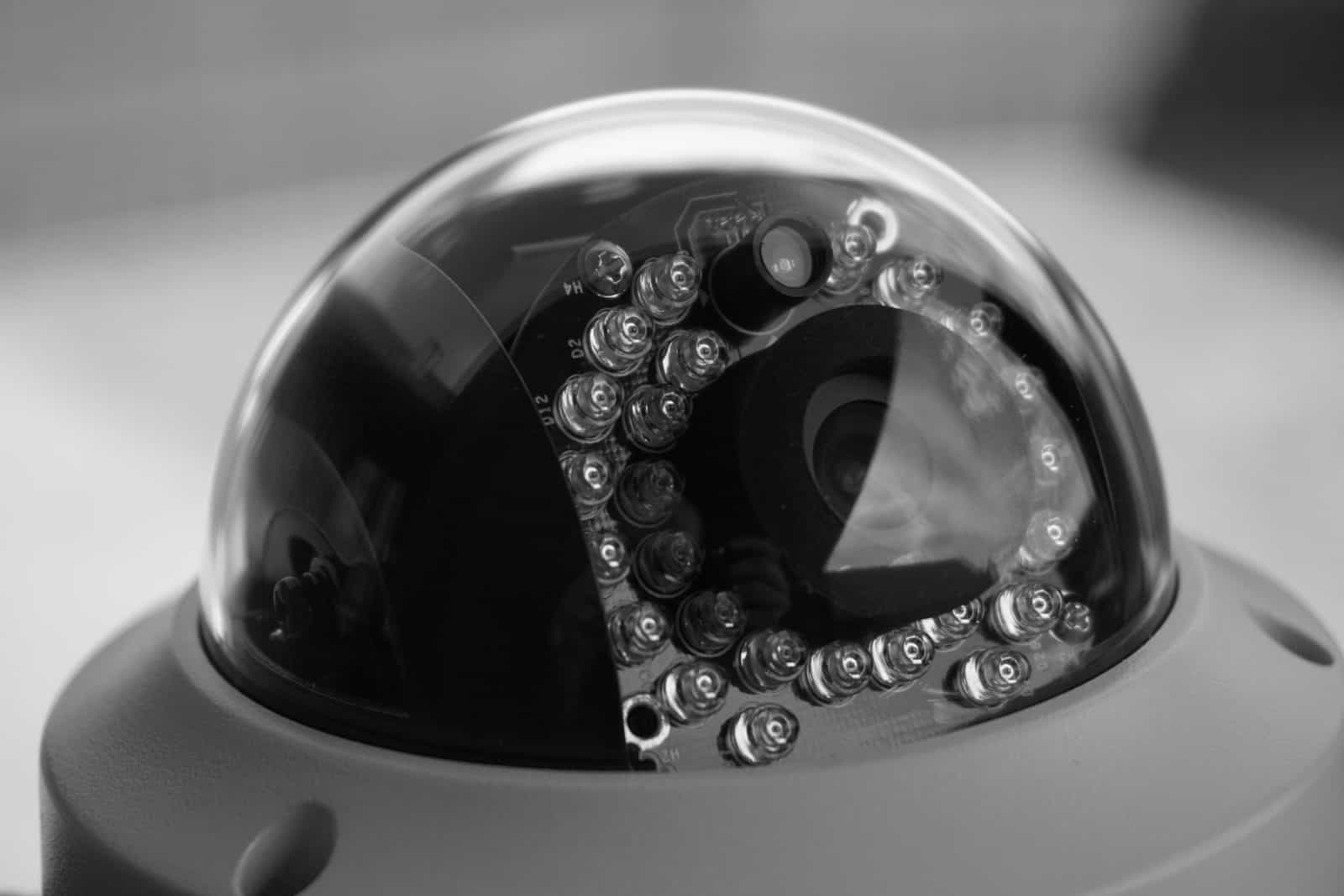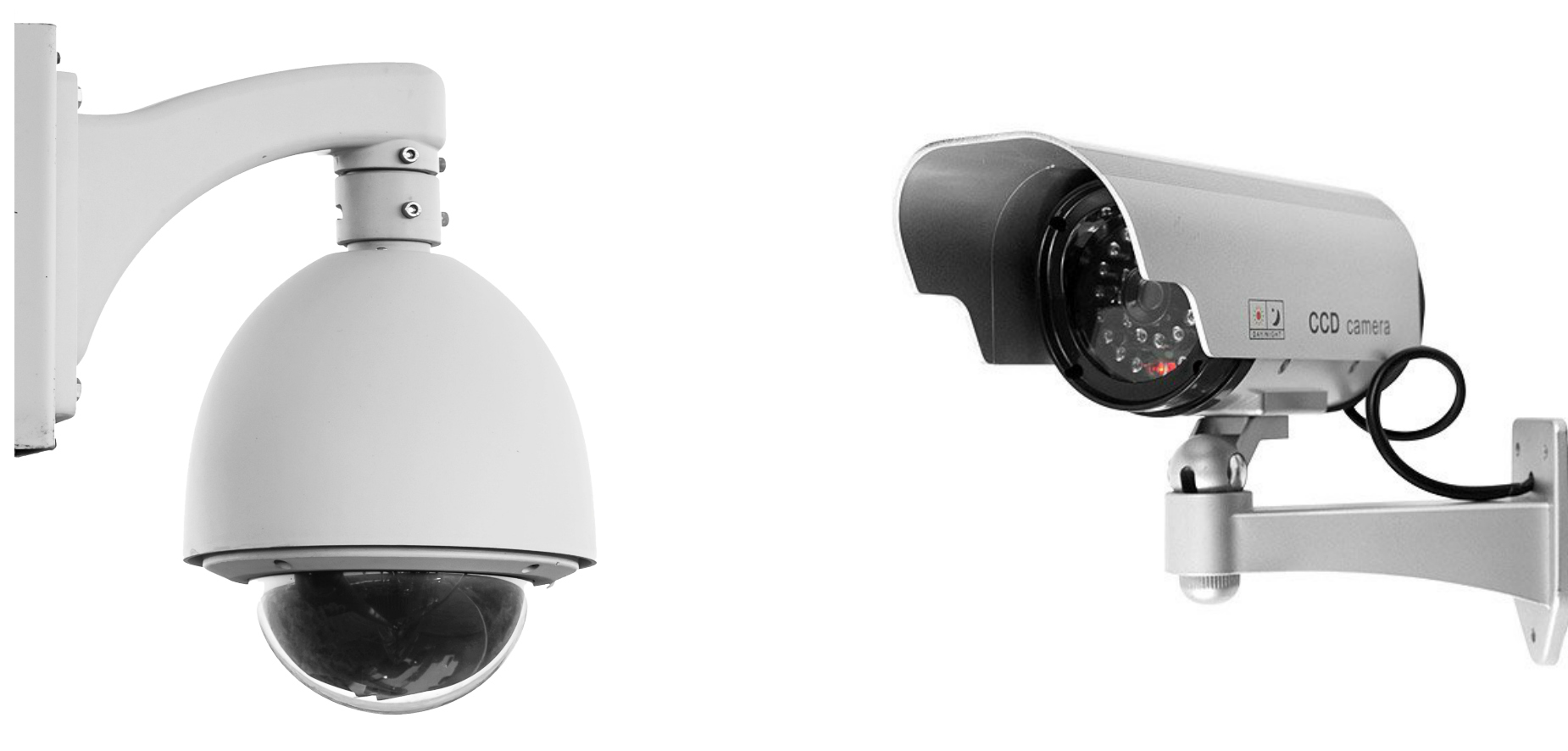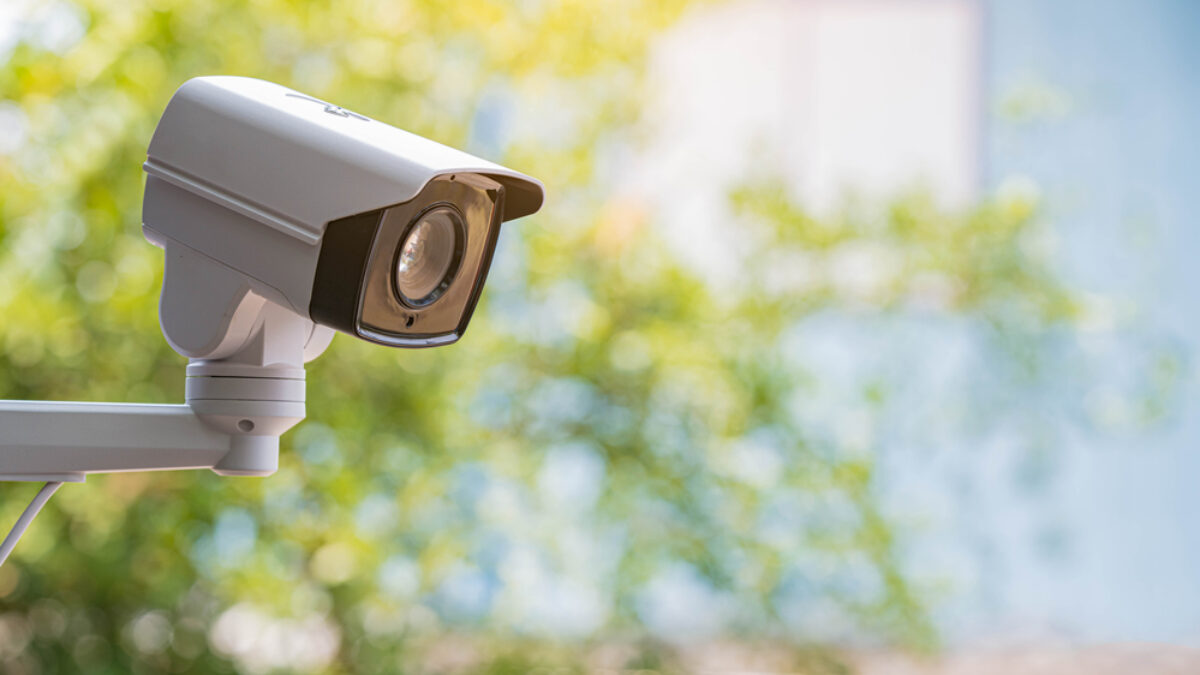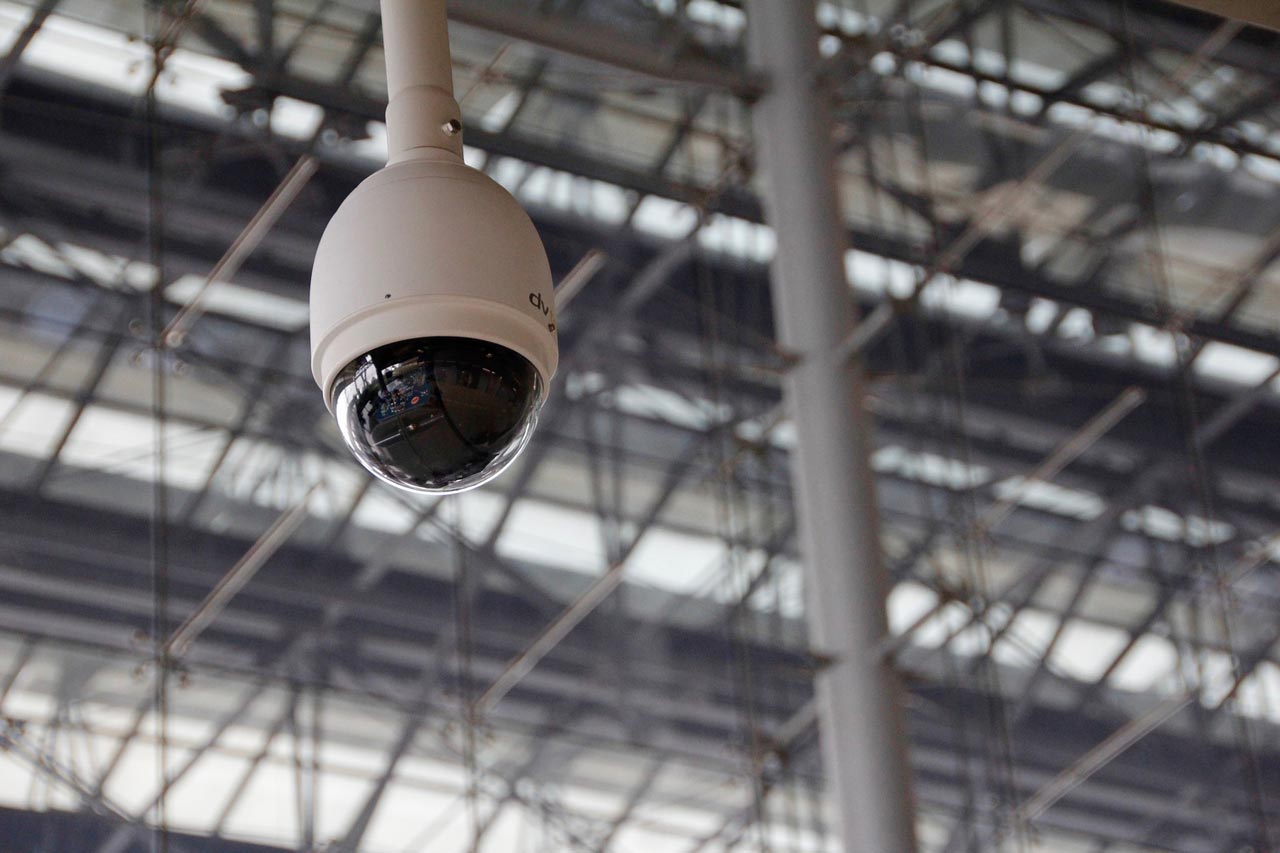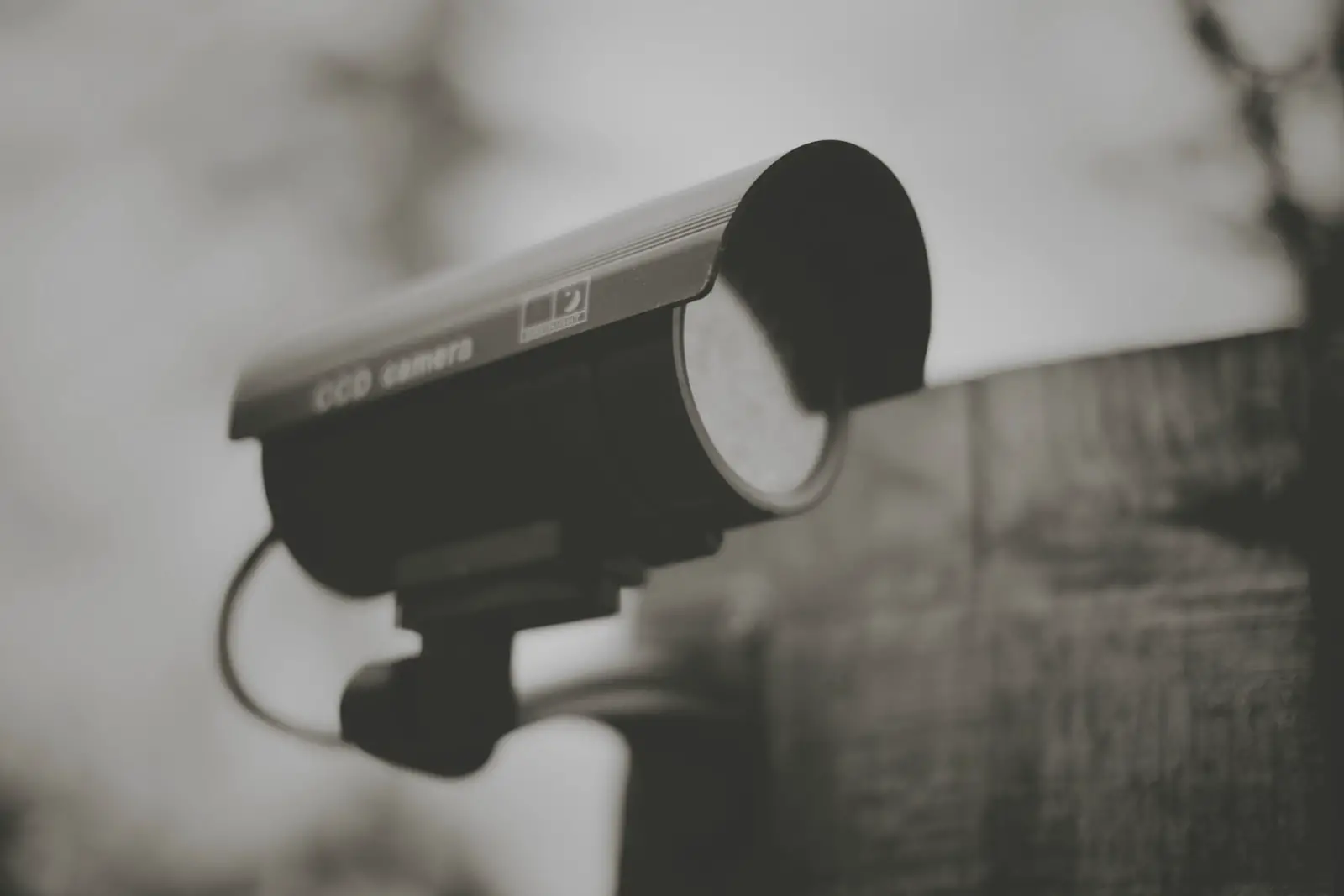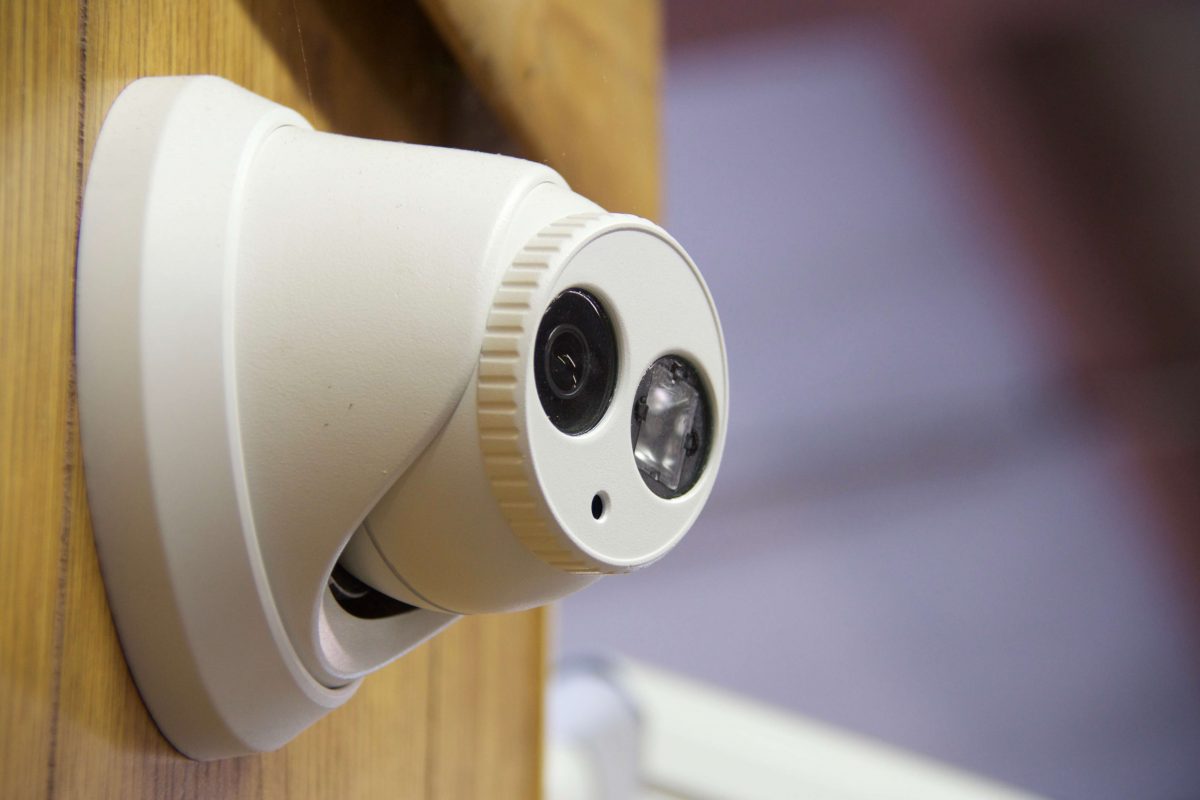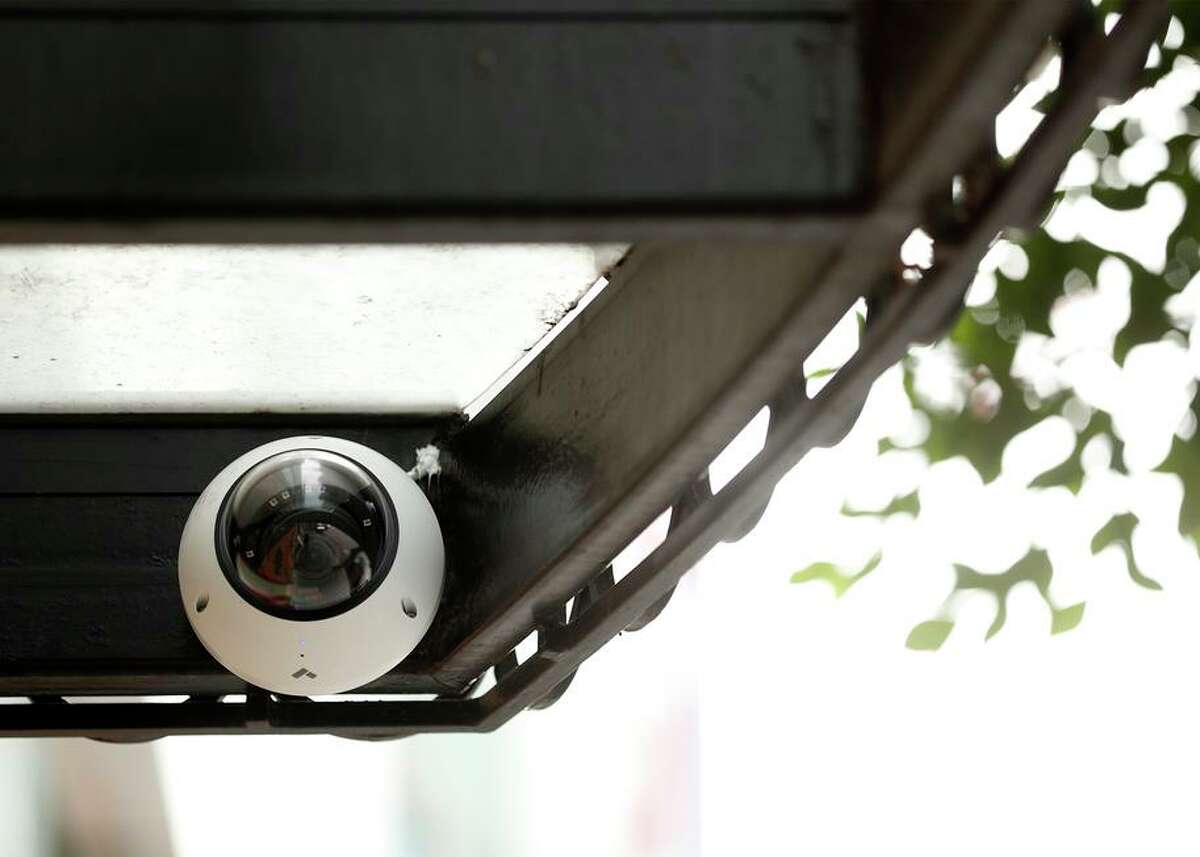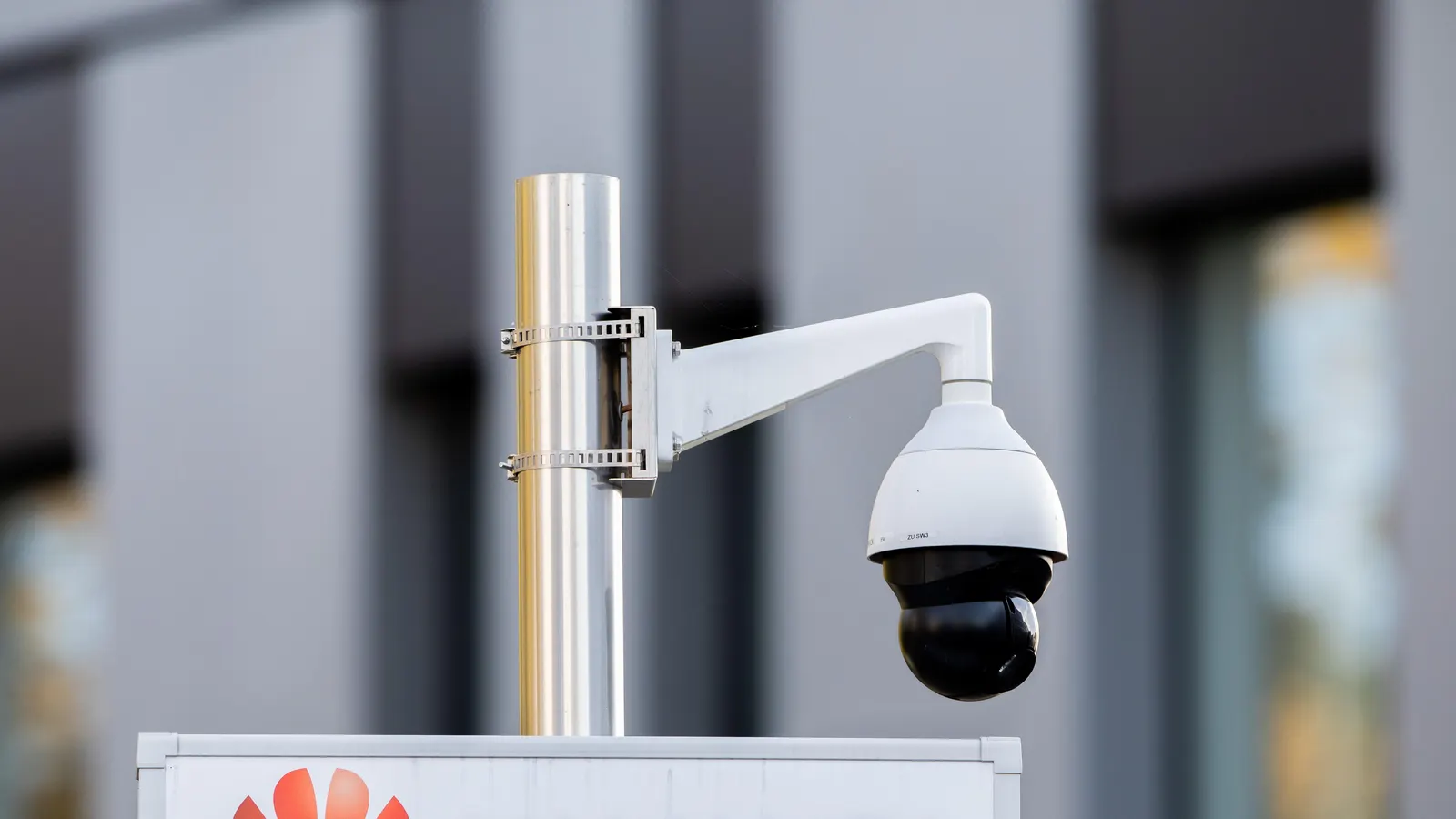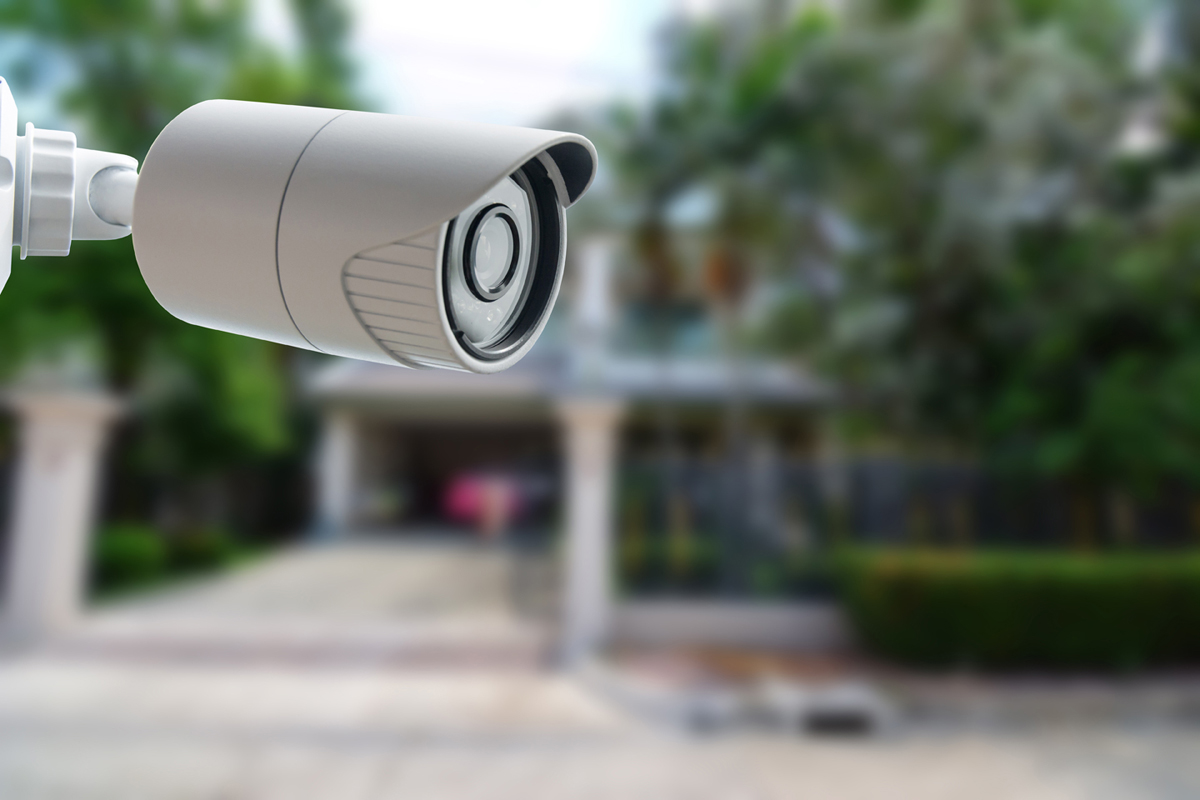Home>Home Security and Surveillance>How Often Are Security Cameras Checked
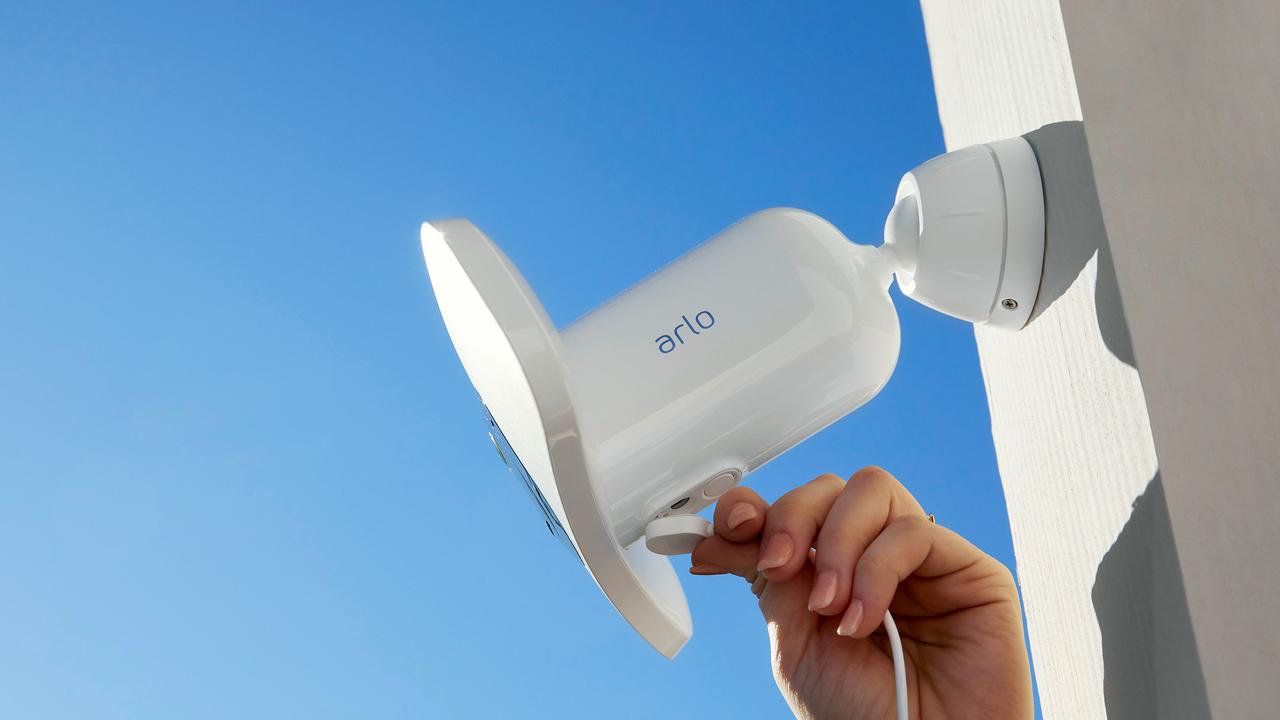

Home Security and Surveillance
How Often Are Security Cameras Checked
Modified: March 6, 2024
Discover how often security cameras are checked in home security and surveillance systems. Find out the importance of regular monitoring for increased safety and peace of mind.
(Many of the links in this article redirect to a specific reviewed product. Your purchase of these products through affiliate links helps to generate commission for Storables.com, at no extra cost. Learn more)
Introduction
In today’s fast-paced and uncertain world, maintaining a secure and safe home has become a top priority for homeowners. One of the most effective measures to ensure the safety of your home is the installation of security cameras. These devices have the ability to monitor and record activities around your property, providing you with valuable evidence in the event of a break-in or other security breach.
However, it is not enough to just install security cameras and assume your home is protected. Regular checks and maintenance of these devices are crucial to ensure their effectiveness. In this article, we will explore the importance of regular security camera checks, the factors that affect the frequency of these checks, industry standards, common practices, and the benefits of keeping a close eye on your security cameras.
By understanding the significance of regular security camera checks and implementing proper maintenance procedures, you can enhance the security of your home and have peace of mind knowing that your surveillance system is functioning optimally.
Key Takeaways:
- Regular security camera checks are essential to maintain a reliable surveillance system, detect issues early, and ensure optimal camera performance for home security.
- Factors like location, camera technology, and security goals influence the frequency of security camera checks, and implementing best practices can maximize the effectiveness of surveillance systems.
Importance of Regular Security Camera Checks
Regular security camera checks are essential for ensuring the overall effectiveness and reliability of your surveillance system. Here are some key reasons why these checks are important:
- Detecting Malfunctions: Security cameras are electronic devices that can develop technical issues over time. Regular checks allow you to identify any malfunctions or performance issues before they become serious problems. This ensures that your cameras are capturing clear and accurate footage when you need them the most.
- Preventing Vulnerabilities: Criminals are constantly evolving their tactics to bypass security measures. By regularly checking your security cameras, you can identify any vulnerabilities in your system and address them promptly. This may include adjusting camera angles, changing passwords, or updating firmware to keep pace with the latest security threats.
- Maintaining Visibility: Dust, debris, and other environmental factors can obstruct the lens of your security cameras, reducing their visibility. Regular checks ensure that the cameras are clean and properly positioned to capture clear footage. By maintaining visibility, you increase the chances of identifying potential threats and suspicious activities.
- Maximizing Deterrence: Security cameras act as a visible deterrent to potential burglars and intruders. However, if they are not properly maintained, malfunctioning cameras can give the impression that your property is not being monitored. Regular checks reinforce the perception that your home is under surveillance, deterring criminals and reducing the likelihood of a break-in.
- Preserving Legal Evidence: In the unfortunate event of a security breach or crime, the footage captured by your security cameras can be vital evidence for authorities and insurance claims. Regular checks ensure that the cameras are recording properly and that the footage is of high quality, increasing the chances of capturing crucial evidence that can help in investigations.
By conducting regular security camera checks, you can proactively address any issues, maximize the effectiveness of your surveillance system, and better protect your home and loved ones from potential threats.
Factors Affecting the Frequency of Security Camera Checks
The frequency of security camera checks can vary depending on several factors. It is important to consider these factors to determine the appropriate schedule for inspecting and maintaining your surveillance system. Here are some factors that can affect the frequency of security camera checks:
- Location and Environment: The environmental conditions in which your security cameras operate can have a significant impact on their performance. Cameras installed in outdoor areas exposed to harsh weather conditions, such as extreme temperatures, rain, or high humidity, may require more frequent checks and maintenance. Similarly, cameras in dusty or dirty environments may need regular cleaning to maintain clear visibility.
- Camera Technology: The type of security camera technology you have installed can also influence the frequency of checks. Older analog cameras may require less frequent checks compared to newer IP (Internet Protocol) cameras, which tend to have more advanced features and require regular firmware updates and software maintenance.
- Security Camera Usage: The intended purpose and usage of your security cameras can determine the check frequency. For example, cameras installed in high-risk areas like entrances, driveways, or sensitive spots may require more frequent inspections compared to cameras in low-risk locations. Additionally, if you rely heavily on your surveillance system for monitoring your property, you may want to conduct more frequent checks to ensure uninterrupted operation.
- System Size and Complexity: The size and complexity of your security camera system can impact the time required for checks and maintenance. Larger systems with multiple cameras may necessitate more frequent inspections to ensure proper functioning of all devices. Similarly, systems with advanced features like motion detection or remote access may require regular checks to ensure these functionalities are working correctly.
- Security Goals and Risks: Your specific security goals and the perceived risks in your area can influence the frequency of camera checks. If you live in an area with a high crime rate or have experienced security incidents in the past, you may opt for more frequent checks to stay vigilant and proactive in addressing any potential security threats.
Considering these factors, it is important to assess the needs and requirements of your security camera system to determine an appropriate schedule for regular checks and maintenance. Consulting with professional security experts or following industry best practices can help you establish a suitable routine to ensure the optimal performance of your surveillance system.
Industry Standards for Security Camera Checks
When it comes to the frequency of security camera checks, there are no hard and fast rules that apply universally. However, the security industry has developed some general guidelines and best practices to ensure the effectiveness and reliability of surveillance systems. Here are some industry standards to consider:
- Manufacturer Recommendations: One of the first sources to consult for guidance on security camera checks is the manufacturer’s instructions and recommendations. Manufacturers typically provide guidelines on the recommended maintenance frequency for their specific camera models. These guidelines may include instructions for firmware updates, cleaning procedures, and regular functionality tests.
- Annual Maintenance: Many security experts recommend conducting annual maintenance checks for all security camera systems. This comprehensive check involves a thorough inspection of each camera, including cleaning the lenses, adjusting camera angles if necessary, checking cables for wear and tear, and ensuring that all camera settings are up to date.
- Regular Cleaning: Cleaning your security cameras is an essential part of their maintenance. Dust, dirt, and debris can accumulate on the lenses, compromising visibility and image quality. Cleaning should be done periodically, especially in outdoor environments or areas prone to dust. Consider using lens cleaners and soft microfiber cloths to gently clean the camera lenses. Avoid using harsh chemicals or abrasive materials that can damage the camera surface.
- Firmware Updates: Security camera manufacturers often release firmware updates to improve camera performance, address security vulnerabilities, and introduce new features. Regularly checking for firmware updates and installing them promptly is crucial for keeping your cameras up to date and ensuring optimal functioning.
- Event-Triggered Checks: In addition to periodic maintenance, it is recommended to conduct checks after specific events or incidents. For example, if there has been a power outage or severe weather conditions, it is advisable to inspect the cameras to ensure they have not been affected. Similarly, if there has been a break-in or suspicious activity reported, reviewing the camera footage and inspecting the system becomes a priority.
- Professional Assistance: For complex security camera systems or larger installations, it may be beneficial to seek professional assistance. Security companies or technicians knowledgeable in surveillance systems can provide expert guidance on maintenance schedules and conduct thorough inspections to ensure the cameras are in optimal working condition.
While these industry standards can serve as a starting point, it is important to consider the specific requirements and factors unique to your security camera system. Regular checks, maintenance, and adherence to manufacturer recommendations will help ensure the longevity and effectiveness of your surveillance system.
Common Practices for Checking Security Cameras
Regularly checking your security cameras is a crucial part of maintaining their reliability and effectiveness. While the exact practices may vary depending on the specific system and individual needs, here are some common practices for checking security cameras:
- Visual Inspection: Conduct a visual inspection of each camera to ensure it is properly mounted, in the correct position, and not obstructed by any objects or vegetation. Check for any visible signs of damage, such as cracks or loose connections.
- Review Footage: Regularly review the footage captured by your security cameras to ensure they are recording and functioning as intended. Look for any gaps, black screens, or distorted images that may indicate a problem with the camera or recording system. Pay attention to the clarity and quality of the footage to ensure it meets your expectations.
- Test Camera Angles: Verify that the camera angles are still optimal for capturing the desired areas. Make adjustments as needed to ensure maximum visibility and coverage of important areas such as entrances, windows, or high-risk locations.
- Check Camera Connections: Inspect the cables and connections of each camera to ensure they are secure and not damaged. Loose connections or frayed cables can result in poor image quality or complete camera failure.
- Verify Remote Access: If you have remote access functionality enabled for your security system, periodically test and verify that you can access the camera feeds and controls from your mobile device or computer. This ensures that you can monitor your property even when you are away.
- Check Power Supply: Ensure that all cameras are receiving a proper power supply. Check power cables, outlets, and switches to confirm they are functioning correctly. Consider using a battery backup or surge protector to protect your cameras and ensure uninterrupted power supply.
- Perform Firmware Updates: Regularly check for firmware updates from the camera manufacturer. Install the updates according to the instructions provided to ensure that your cameras are equipped with the latest features, improvements, and security patches.
- Maintain a Maintenance Log: Keep a record of all checks, maintenance activities, and any issues encountered. This log can help track the performance of your security cameras over time and identify any recurring problems or patterns.
By incorporating these common practices into your security camera maintenance routine, you can ensure that your surveillance system is functioning optimally and that any issues are detected and addressed promptly.
Security cameras are typically checked on a regular basis, with some being monitored in real-time and others being reviewed periodically. It’s important to know the specific monitoring schedule for the cameras in your area.
Read more: How Often To Check Mirrors While Driving
Benefits of Regular Security Camera Checks
Regular security camera checks offer numerous benefits that contribute to the effectiveness and reliability of your surveillance system. Here are some key advantages of conducting regular checks:
- Early Detection of Issues: Regular checks allow you to identify any issues or malfunctions with your security cameras at an early stage. Detecting and addressing problems early can prevent them from escalating into major issues, ensuring that your cameras are always in working order when you need them.
- Improved Performance: Conducting regular checks and maintenance helps maintain the optimal performance of your security cameras. By cleaning the lenses, adjusting camera angles, and ensuring proper connections, you can enhance the video quality and clarity of the footage captured.
- Enhanced Security: Regular camera checks contribute to enhanced security by ensuring that the surveillance system is functioning properly. This provides peace of mind, knowing that your home or property is being effectively monitored, deterring potential intruders and ensuring the safety of your loved ones.
- Maximized Coverage and Visibility: By reviewing camera footage and checking angles, you can ensure that your security cameras are capturing the desired areas effectively. Optimized coverage and visibility minimize blind spots, helping to identify potential threats or suspicious activities.
- Preserve Legal Evidence: In the event of a break-in or security incident, the footage captured by your security cameras can serve as valuable evidence for law enforcement and insurance claims. Regular checks ensure that the cameras are recording accurately, increasing the likelihood of capturing crucial evidence that can be used for investigations.
- Reduced Downtime: Regular maintenance and checks help reduce downtime for your security cameras. By addressing issues proactively, you minimize the risk of camera failures or extended periods of non-functioning cameras, ensuring consistent surveillance coverage.
- Cost Savings: Regular checks can help identify potential issues before they lead to expensive repairs or replacement of security camera equipment. By addressing minor problems early on, you can avoid costly repairs or the need to invest in entirely new cameras.
- Prolonged Camera Lifespan: Proper maintenance and regular checks can extend the lifespan of your security cameras. By keeping them clean, adjusting camera settings, and performing necessary updates, you can ensure that your cameras continue to operate effectively for a longer period.
By recognizing and embracing the benefits of regular security camera checks, you can maintain a robust surveillance system that offers reliable protection for your home or property.
Potential Risks of Infrequent Security Camera Checks
Infrequent security camera checks can pose several risks that can undermine the effectiveness of your surveillance system. Here are some potential risks associated with neglecting regular checks:
- Reduced Visibility and Performance: Over time, security cameras can accumulate dust, dirt, or other environmental debris, which can obstruct the lens and reduce visibility. Without regular checks and cleaning, the image quality may deteriorate, making it difficult to identify important details or potential threats.
- Malfunctioning Cameras: Security cameras are electronic devices that can develop technical issues over time. Without regular checks, you may not be aware of any malfunctions, such as power failures, loss of network connectivity, or hardware damage. Malfunctioning cameras can leave blind spots in your surveillance coverage, compromising the overall security of your property.
- Inoperable Recording System: Neglecting regular checks can result in an inoperable recording system. Hard drives can fill up, and if not properly managed, the system may stop recording or overwrite important footage. Failure to regularly review the recording system’s status can lead to missed recordings and a loss of crucial evidence in the event of a security breach.
- Outdated Firmware: Manufacturers regularly release firmware updates to enhance camera performance, address security vulnerabilities, and introduce new features. Without regular checks, you may miss important firmware updates, leaving your cameras exposed to potential security risks and missing out on improved functionality.
- Difficulty in Identifying Incidents: Infrequent camera checks can make it challenging to identify and respond to security incidents in a timely manner. Delays in reviewing camera footage can result in vital evidence being lost or destroyed, making it harder to identify perpetrators or take appropriate action.
- Ineffective Surveillance: Security cameras are meant to act as a deterrent to potential intruders. However, if cameras are not regularly checked and maintained, they may give the impression that your property is not being monitored. This could embolden criminals to target your home, compromising the overall security of your property.
- Voided Warranty: Many security camera manufacturers require regular maintenance checks to maintain warranty coverage. Neglecting regular checks may void the warranty, leaving you responsible for any repairs or replacements that may be required.
- Increased Security Risks: Infrequent security camera checks can leave your property vulnerable to security threats. Without regular monitoring and maintenance, you may not be aware of potential weaknesses in your surveillance system, making it easier for criminals to exploit any security gaps.
To mitigate these potential risks, it is important to establish a regular check schedule for your security cameras and allocate dedicated time for maintenance and performance evaluation. By conducting regular checks, you can proactively address any issues, ensure the reliability of your surveillance system, and maintain a secure home or property.
Strategies to Improve Security Camera Check Frequency
Improving the frequency of security camera checks is essential to maintaining a reliable and effective surveillance system. Here are some strategies to help you maximize the frequency of your security camera checks:
- Create a Maintenance Schedule: Establish a regular maintenance schedule that includes routine checks for all security cameras. This schedule should outline specific tasks such as cleaning camera lenses, inspecting cables and connectors, and reviewing camera footage.
- Automate Checks: Use software or technology solutions that can automate certain camera checks. Some advanced surveillance systems offer features that can self-diagnose camera health, alerting you to any issues or malfunctions that require attention.
- Assign Responsibility: Clearly designate someone in your household or organization as responsible for conducting security camera checks. This responsibility can be rotated among individuals or assigned to a dedicated team. Make sure everyone understands the importance of regular checks and the tasks involved.
- Set Reminders: Use electronic calendars, reminder apps, or notifications on your mobile devices as reminders for scheduled security camera checks. Setting up recurring alerts ensures that you won’t forget or overlook these important maintenance tasks.
- Train Staff or Family Members: If you have a team or family members who can assist with security camera checks, provide them with training on how to conduct the checks effectively and what to look for during the process. This ensures that the responsibility is shared and that checks are conducted properly.
- Document Check Results: Keep a log or record of each security camera check, documenting the date of the check, any issues identified, and the actions taken to resolve them. This log can serve as a reference for future checks and also help identify any recurring problems that require further attention.
- Utilize Remote Access: Take advantage of remote access capabilities offered by your security camera system. This allows you to check camera feeds and perform basic maintenance tasks from anywhere, streamlining the process and making it more convenient to conduct regular checks.
- Engage Professional Assistance: Consider partnering with a professional security company or technician to perform regular maintenance checks. They have the expertise and experience to ensure that your security cameras are functioning optimally and can provide guidance on best practices for maintenance and checks.
- Stay Informed: Keep up-to-date with the latest security camera technology, manufacturer recommendations, and industry best practices. Subscribe to newsletters, follow relevant online forums or discussion groups, and stay informed about any firmware updates or software releases that may enhance the functionality and performance of your cameras.
By implementing these strategies, you can improve the frequency of your security camera checks, ensuring that your surveillance system remains reliable, effective, and capable of protecting your home or property.
Conclusion
In conclusion, regular security camera checks are crucial for maintaining a reliable and effective surveillance system. By conducting these checks, you can detect and address any issues or malfunctions early on, ensuring that your cameras are functioning optimally when you need them the most.
Factors such as location, camera technology, usage, system size, and security goals can influence the frequency of security camera checks. While there are no strict industry standards, following manufacturer recommendations and implementing best practices can help guide the maintenance schedule for your specific system.
Regular checks offer numerous benefits, including early issue detection, improved camera performance, enhanced security, preserved legal evidence, cost savings, and prolonged camera lifespan. On the other hand, infrequent checks can pose risks such as reduced visibility, malfunctioning cameras, ineffective surveillance, and increased security vulnerabilities.
To improve the frequency of security camera checks, create a maintenance schedule, automate checks where possible, assign responsibility, set reminders, train staff or family members, and utilize remote access capabilities. Engaging professional assistance can also ensure thorough checks and adherence to industry best practices.
By recognizing the importance of regular security camera checks and implementing strategies to improve their frequency, you can maintain a strong surveillance system that helps protect your home or property and provides peace of mind.
Remember, security is an ongoing process, and staying proactive with regular checks and maintenance is essential to ensure the continued effectiveness of your security cameras.
Frequently Asked Questions about How Often Are Security Cameras Checked
Was this page helpful?
At Storables.com, we guarantee accurate and reliable information. Our content, validated by Expert Board Contributors, is crafted following stringent Editorial Policies. We're committed to providing you with well-researched, expert-backed insights for all your informational needs.
